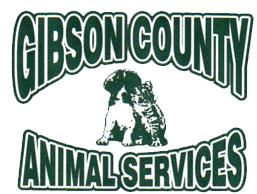Foster Homes
From time to time GCAS has animals brought into our shelter that need some extra care. Sometimes it may be a nursing female whose litter is too small to be separated from their mother or an animal is injured and needs recovery time. Sometimes it is a sick animal that needs an antibiotic regiment for young animals needing socialization. Then there are animals that have been starved or beaten by abusive owners who just need time and love to recuperate. Placing these animals in loving foster homes offers them the best chance of survival. It gives them the one on one attention they so badly need.
There are several things to consider before making the decision to be a “Foster Parent”.
First you must consider the health and well-being of your own pets. Do you have a separate area to keep a sick fostered animals separated from your pets? Are your pets current on their vaccinations? Do your pets have any medical conditions or are they elderly? Do you have a separate place in your yard where a sick or injured animal could do their business? These are questions you need to ask yourself. GCAS wants NO foster animal to pass any illness onto a foster families pet. GCAS cannot be responsible for a foster family’s own pet becoming ill. If you are comfortable with your answers to the questions and still wish be a foster parent for GCAS, WELCOME!
Nursing females must be in foster care until the babies are 8 weeks of age. Weaning of litters can begin at 6 weeks of age; however litters must stay with their mothers for 8 weeks to ensure their survival.
GCAS provides all foster families with supplies needed to care for fostered animals such as food, cages, medications, and necessary vet care.
All vet visits must first be approved by the shelter. If you have concerns that a fostered animal may need to be seen by a vet, first call the shelter at 812-386-8079 or the executive director at 812-304-0210. All foster animals are seen at Princeton Vet Clinic at 806 E. Water St, Princeton, IN 47670.
At times, GCAS has to make the hard decision to euthanize fostered animals for various reasons. Please understand we don’t take these decisions lightly and those choices are hard for us also. We are faced with the reality daily of not being able to save all of these animals. It is difficult to foster an animal then see it euthanized, but our belief is there are worse things that can happen to these creatures than the humane passing we provide them. As a potential foster family, you must evaluate if you can let go when necessary.
As foster families, GCAS will give special consideration to families wanting to adopt fostered animals. However all animals will be subject to normal adoption procedures of GCAS.
All animals are the property of Gibson County Animal Services until a legal adoption has taken place.
